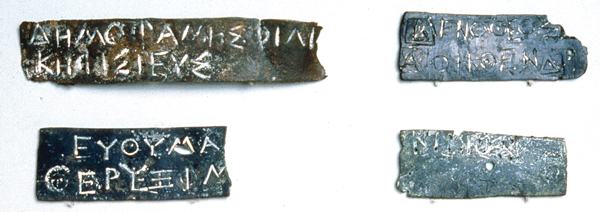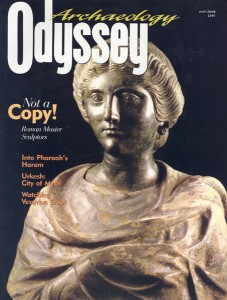Origins: And the Verdict Is …
In creating the jury system, the ancient Greeks reinvented the idea of justice.

We usually picture jurors as 12 duly sworn, impaneled citizens, with one of them standing up at the end of a trial to deliver a verdict. Indeed the word “juror” is cognate with the Latin word iurare, meaning to swear, and it implies an oath to judge truly. But where in the Western world did the notion of such judging groups originate?
In Homer’s Iliad, Book 18, the god Hephaistos creates a new shield for Achilles. On that shield, he blazons a whole world along with scenes of war and peace—a tableau that might well have been common in the early eighth-century B.C.E. Hellenic world in which Homer lived. One scene takes place in a market, where two men are in fierce disagreement after a killing. They then submit their dispute to what scholars normally interpret as a jury trial: “The people were cheering for both, on the part of one side and the other. The heralds kept the people in order, and the elders sat on shaped stones in a consecrated circle. They held in their hands the batons of loud-voiced heralds with which they would rise and speak the right in turn. Two talents of gold lay in their midst to give to him among them who spoke the straightest right.”
Already a library member? Log in here.
Institution user? Log in with your IP address.

